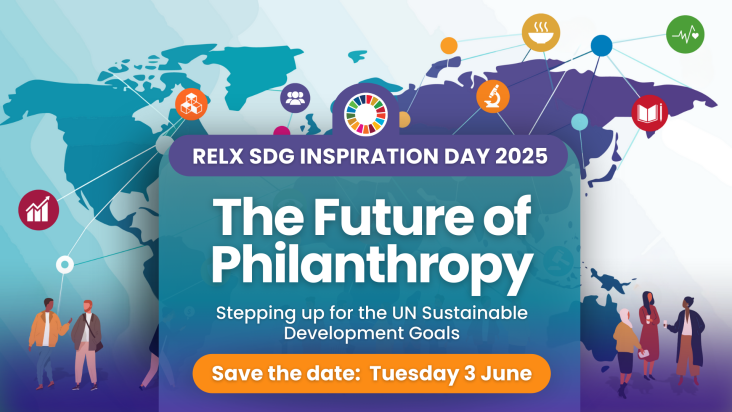
International Day of Human Space Flight 2026: A Tribute to Exploration, Unity, and Progress

22nd April is Earth Day, an annual, global movement to raise awareness and promote environmental protection. The theme for Earth Day 2025 is OUR POWER, OUR PLANET, inviting everyone around the globe to unite behind renewable energy, and to triple the global generation of clean electricity by 2030. To mark the event Elsevier has curated a free to access Special Collection featuring the latest research articles and book chapters to advance knowledge.

RELX SDG Inspiration Day 2025
The Future of Philanthropy: Stepping up for the United Nations Sustainable Development Goals

Corporate Responsibility (CR) starts with the positive impact RELX has on society through our products and services.

World Water Day, held on March 22, is an annual United Nations Observance focusing on the importance of fresh water. The theme of this year’s observance is Glacier Preservation; glaciers are critical to life – their meltwater is essential for drinking water, agriculture, industry, clean energy production, and healthy ecosystems. To mark World Water Day 2025, Elsevier has curated a free special collection of journal articles and book chapters to raise awareness for this important topic, and to help advance #SDG6 research.
María F. Manobanda-Lisintuña, Cristina A. Villamar-Ayala,
Carbon and water footprints within an environmental laboratory: Water, energy, and packaging management strategies,
Green Analytical Chemistry,
Volume 13,
2025,
100243,
ISSN 2772-5774,
https://doi.org/10.1016/j.greeac.2025.100243.
Also in laboratories we should be critical about the amount of water, energy, and resources used. There is room for increasing efficiency and better mangement there as well. The objective of this study is to evaluate the carbon and water footprints present in an environmental laboratory..

